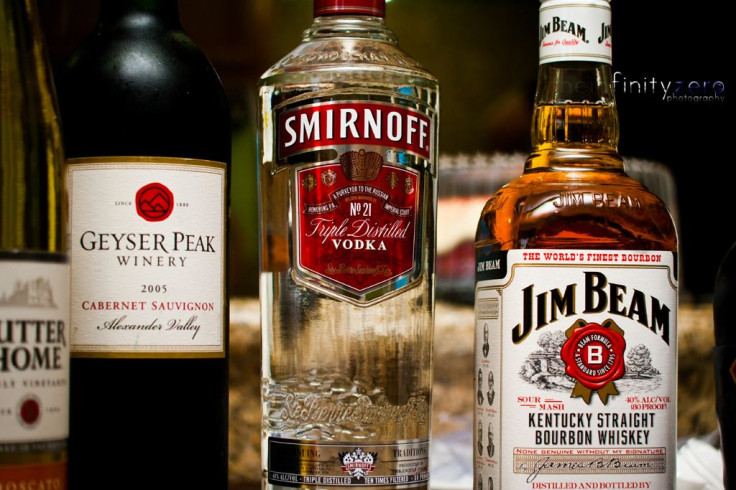For Young Adults, Binge Drinking And High Blood Pressure May Go Hand In Hand

We already have evidence that drinking in excess — downing too many shots for your 21st birthday, or chronically pouring yourself glasses of vodka every morning — can destroy your heart, liver, brain, and other organs, especially among young people. One recent study out of the University of Montreal Hospital Research Centre (CRCHUM) reinforces this notion by adding one more health risk to the barrel — high blood pressure.
“We found that the blood pressure of young adults aged 20 to 24 who binge drink was 2 to 4 millimeters of mercury higher than non-binge drinkers,” Jennifer O’Loughlin, a researcher at CRCHUM and senior author of the study, said in the press release.
The study, published in the Journal of Adolescent Health, examined the blood pressure of 756 young people at age 20, then again at age 24. One in four young adults who were binge drinkers (people who typically drank more than five drinks in one occasion) turned out to meet the criteria for pre-hypertension, which is “worrisome because this condition can progress to hypertension, which in turn can cause heart disease and premature death,” O’Loughlin said in the press release.
The findings come on the heels of other recent studies that have placed the spotlight on how binge-drinking in your teens and 20s can damage your immune system, negatively affect your brain, and hurt your learning abilities and memory.
To further study the impact excessive drinking has on blood pressure and heart health, the researchers will track the same participants as they turn 30 to see whether their drinking increases or decreases, and whether their high blood pressure gets worse. Their main interest is to determine whether decreasing alcohol intake with age would reduce the associated risk of hypertension; or if young adults would be damaging their bodies permanently.
The best way to tackle this budding problem is to raise awareness among young adults about binge drinking and its link to high blood pressure, O’Loughlin notes. That could mean physicians talking to young patients about the risks of drinking in relation to hypertension — alongside lifestyle, diet, and physical activity.
“Poor diet, salt intake, and obesity are predictors of high blood pressure,” O’Loughlin said. “Since we know there is a link between higher blood pressure and the risk of developing chronic diseases, clinicians should ask young people about their alcohol consumption. A slight and continuous increase in systolic blood pressure may be an important warning sign.”
Source: Wellman R, Vaughn J, Sylvestre M, O’Loughlin E, Dugas E, O’Loughlin J. Relationships Between Current and Past Binge Drinking and Systolic Blood Pressure in Young Adults. Journal of Adolescent Health, 2016.



























